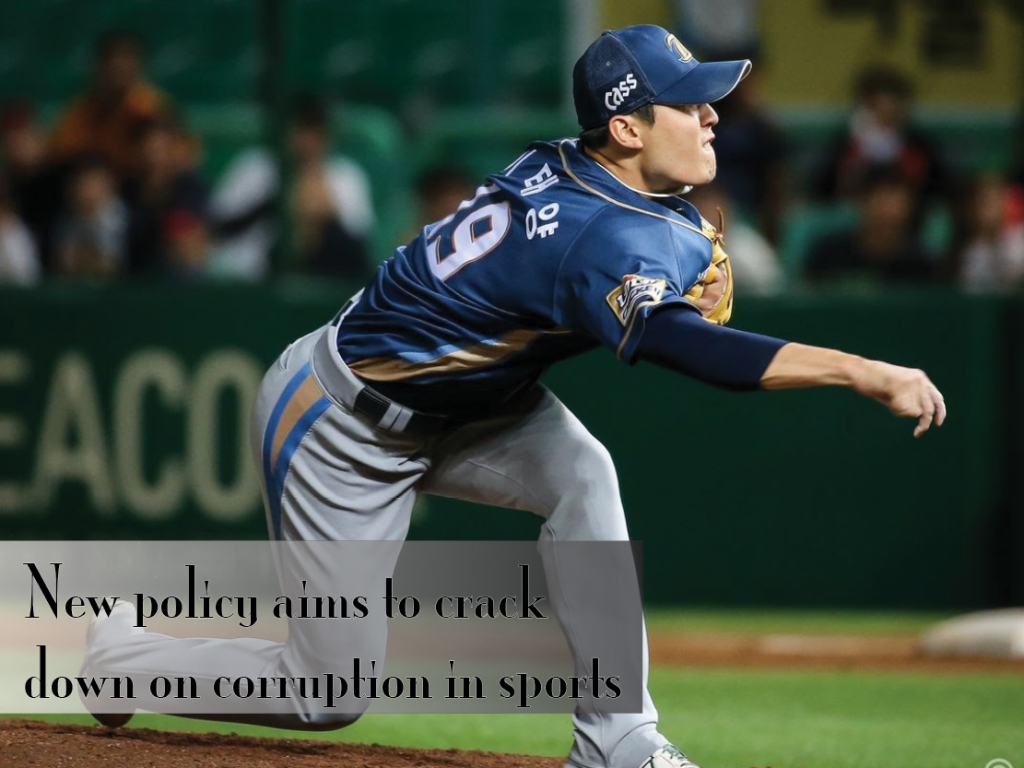Underneath the cheerful atmosphere of a sports stadium – the boisterous and often rowdy fans, the stands that sell an assortment of refreshments, and the strategic plays and brilliant displays by athletes – is a somewhat more subtle reality. To the astonishment and disappointment of many loyal fans, “match-fixing scandals,” in which athletes bend the games and influence the hits and throws for personal gains, have been recently exposed by the Prosecutors’ office.
Allegations of match-fixing and illegal gambling early this year prompted the Korea Professional Sports Association (KPSA) to pass a resolution that vowed zero tolerance for corruption and unlawful actions in sports. Though anti-corruption measures are already in place, the KSPA aims to take a stronger stance and crack down on corruption with new measures.
“Though the KSPA has been concentrating on reducing corruption in sports a lot in the past, it is reassuring that they are taking further steps,” said Justin Lee (12), varsity boys volleyball player. “It is disconcerting to see sports be corrupted by money, especially as an avid fan of baseball. I wish sports could go back to when it was all about winning games and not about winning money since that is what true sports should be.”
NC Dinos pitcher Lee Tae Yang is also currently under investigation for attempts to fix matches during the previous season. Prosecutors have found evidence that allegedly shows Lee intentionally allowing a base on balls or pitching outside the strike zone four times to allow the opposition to move to first base, ultimately receiving a sum of 20 million won from a gambling broker. Sangmu Phoenix Outfielder Moon Woo Ram has also been indicted after evidence was uncovered that he had received 10 million won for introducing the broker to Lee.
“In baseball, there are many exciting plays and amazing shows of skills,” said William Chung (11), LG Twins fan. “The joy of watching baseball is to know that anything and everything can happen – and the player’s own skill makes that possible. But these match-fixing scandals taint baseball because the sport is no longer about winning games but winning money.”
In response to numerous scandals this year, the KSPA plans to establish an independent special disciplinary committee that will determine the consequences of athletes who participate in match-fixing schemes. The committee will have the authority to determine the sufficiency of the penalty against an athlete involved in corruption and decree more severe punishments if unsatisfactory. In addition, an anti-corruption committee will be created, and use to fund anti-corruption programs. Rewards for informing on corruption will be increased to a maximum of 200 million won, giving incentive for people to speak out against corruption. Discrepancies in the rules between leagues will be eliminated by standardizing the rules and regulations for each league in regards to unlawful behavior.
In addition to increasing the severity of punishments, the KPSA also seeks to place an emphasis on match-fixing prevention, which the KSPA hopes to achieve by educating aspiring athletes on the consequences of corruption. These efforts will be further strengthened by cooperation with government authorities, including the police, the Supreme Prosecutors’ Office, the Korea Communications Commission (KCC), and the National Gambling Control Commission (NGCC).
“It is relieving to see the KSPA take an even stronger stance against corruption in sports,” said Sean Oh (11), varsity boys volleyball player. “Increasing the degree of punishments is probably a good way to discourage athletes from taking advantage of the game in order to earn lots of money. In addition, educating the youth about the dangers of corruption is likely going to be a sound method of preventing future cases of match-fixing. With these new policies, I can see the amount of corruption in sports decrease significantly in the next few years.”

